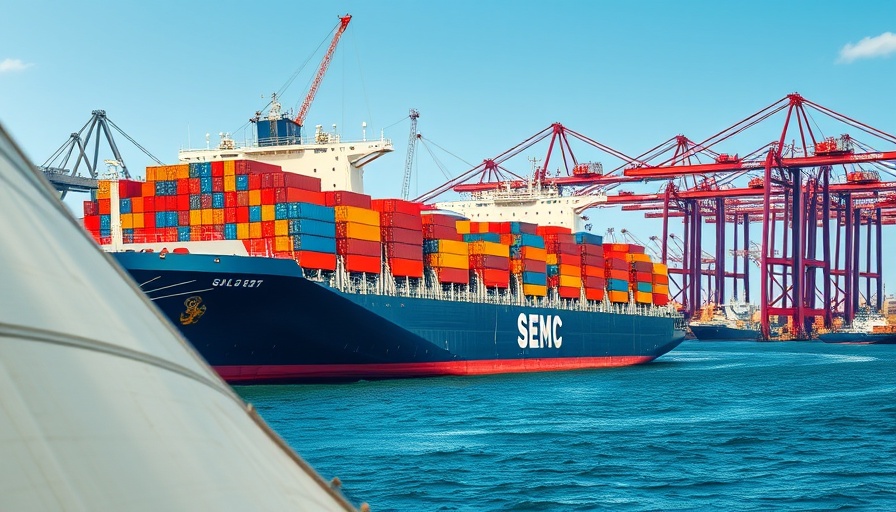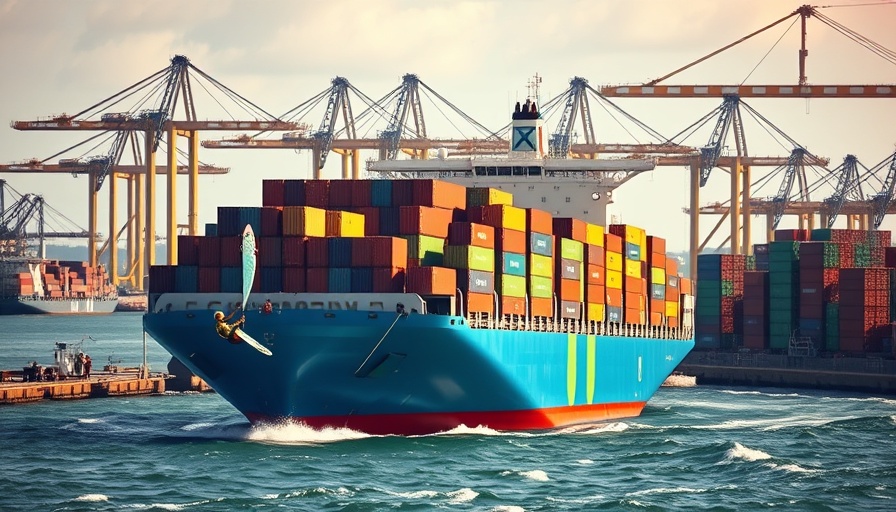
The Far-Reaching Impact of Trump's New Tariffs
As the Trump administration signals a new wave of tariffs, especially focusing on semiconductors, many investors and consumers alike are left wondering about the implications for the economy. The potential effect on retail earnings is expected to reveal the true impact of these tariffs, which could ripple through various sectors, from technology to everyday consumer products.
Understanding the Economic Landscape
The anticipated tariffs highlight a significant shift in U.S. trade policy, as President Trump reiterates his commitment to protecting American industries. By imposing these tariffs, particularly in high-tech areas like semiconductors—crucial for driving innovation and economic growth—the government aims to boost domestic manufacturing. However, this could lead to an eventual increase in prices for consumers, affecting spending patterns at a time when the economy is navigating recovery.
Impact on Retail Earnings: A Deep Dive
Industry analysts are bracing for a detailed look at retail earnings reports, which are expected to demonstrate how inflationary concerns and tariffs are affecting each company's bottom line. Businesses that rely heavily on imported goods may face increased costs, which could be passed on to consumers in the form of increased prices. This raises questions about consumer spending power and the overall health of the economy.
Future Outlook for Investment Strategies
The impending tariffs create a critical situation for investors. Stock markets could respond negatively as uncertainty looms over sector performance. It’s essential for traders and investors to revisit their investment strategies, focusing on portfolio diversification and considering how tariffs might affect asset allocation.
Navigating Tariffs: Practical Financial Insights
For individuals, particularly those focused on financial planning, understanding the implications of these tariffs is crucial. Adopting a proactive approach in financial management—such as reassessing risk management tactics, and revising plans for wealth preservation—can shield investments from market volatility. Remaining informed on tax implications and potential changes in wealth management strategies is also advisable.
The Local vs. Global Dynamic
Local businesses may feel the strain of imported goods becoming more expensive due to tariffs. Small businesses should consider reevaluating their supply chains and exploring alternative investments or sourcing more products domestically to mitigate the impacts of rising costs. This shift could lead to an opportunity for local entrepreneurs, ultimately contributing to a more resilient community.
Identifying Long-term Opportunities
In the midst of uncertainty, it’s essential for investors to look for long-term care planning opportunities. Real estate investments may offer a stable haven amid equity volatility. Adopting inflation protection strategies becomes increasingly relevant as tariffs ignite concerns over prices rising across the board.
Conclusion and Next Steps
The conversation surrounding U.S. tariffs is evolving every day, and for individuals aiming for financial independence, it’s imperative to stay informed and engage with financial advisors about potential strategies to optimize their investments. Leveraging advice from professionals in retirement planning and tax-efficient investing can be pivotal as the financial landscape shifts under the weight of these new policies.
In light of current events, it’s time to reassess your financial strategy. Are you prepared for the impact of tariffs on your investments and savings? Consulting with a financial advisor can provide clarity and preventive strategies to optimize your financial health amidst fluctuating economic policies.
 Add Row
Add Row  Add
Add 




Write A Comment